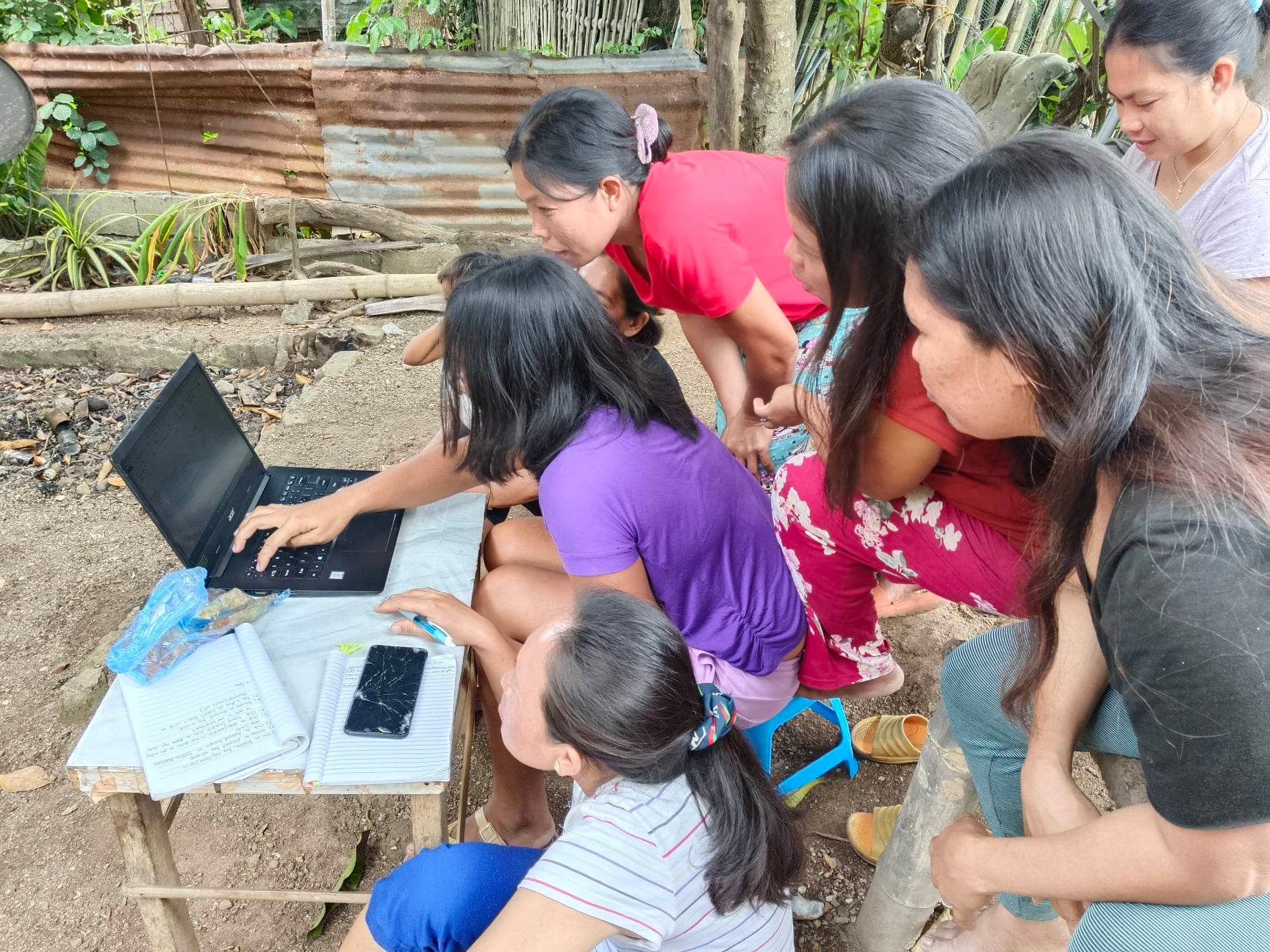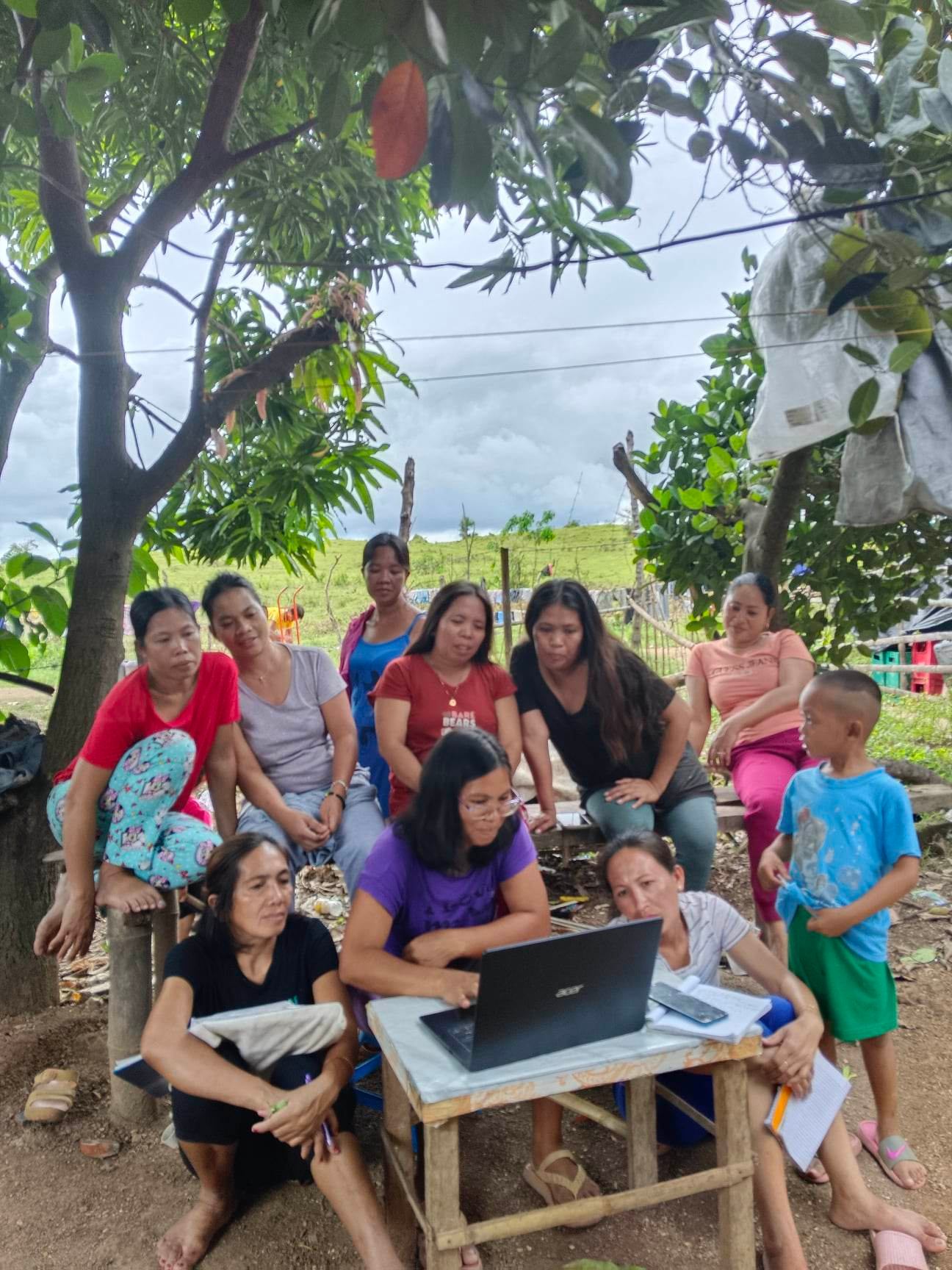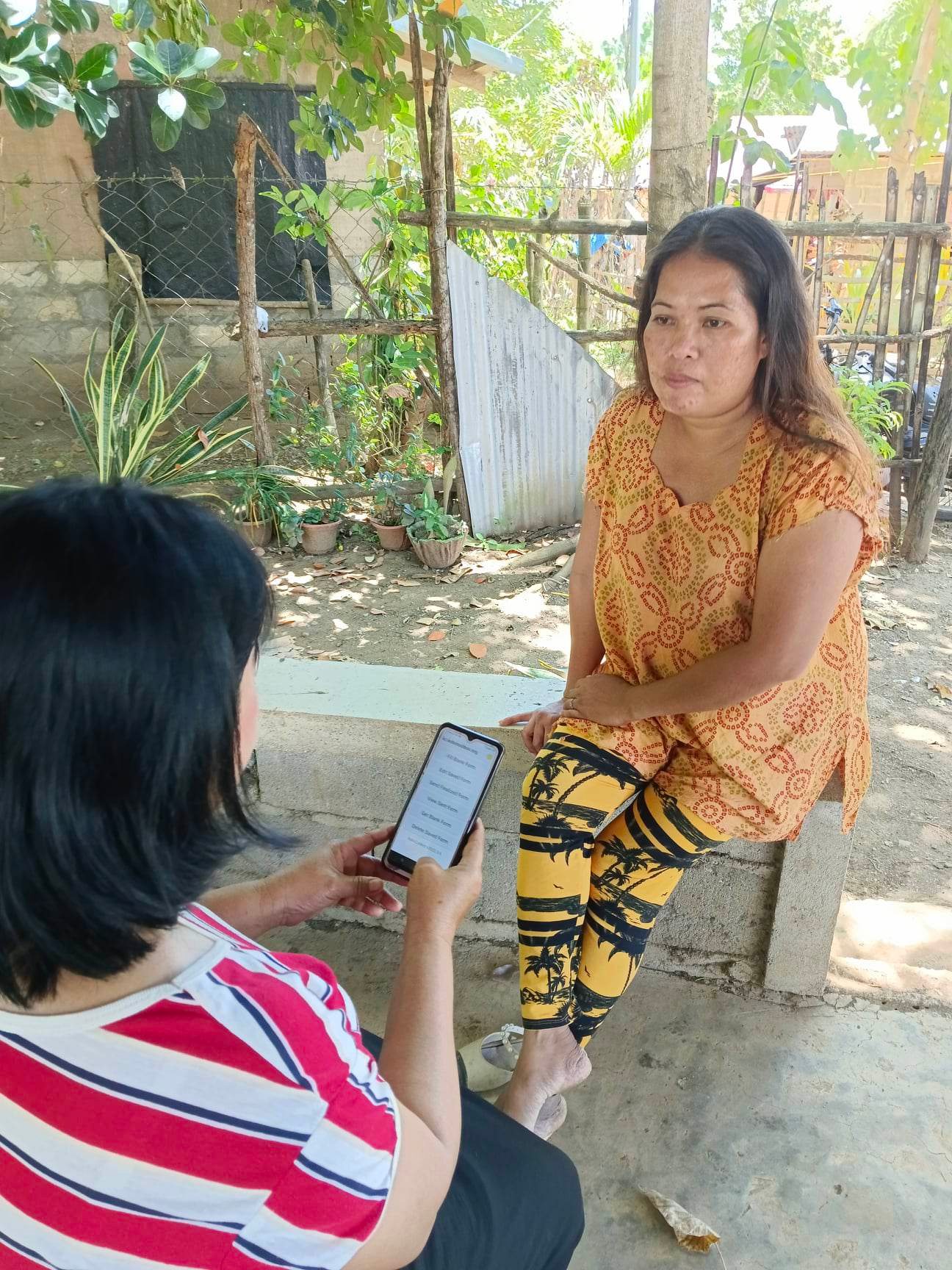Beyond the technology
Improving food security in coastal communities: Using KoboToolbox for local data collection efforts in the Philippines
Food insecurity, hunger, and malnutrition affect a significant portion of the population in the Philippines, especially women and children. In 2021, over 3.4 million families across the country were reported as experiencing hunger. In rural and coastal areas, these challenges are exacerbated by climate change-induced disasters, rising food costs, and high levels of unemployment. Rice in particular is a crucial source of income and nutrition, but during nationwide shortages communities are often forced to borrow this food staple at extremely high interest rates. Households can spend up to 73% of their daily income on rice, which can quickly deplete financial resources and lead to unmanageable cycles of debt. Kapit-Bisig para sa Kasaganan ng Hagmang Association (KASAG), a women-led organization committed to achieving greater food security in their local community, has piloted a data-driven program to support more sustainable and reliable food access.

In collaboration with Outreach Philippines Incorporated (OPI), an organization focused on building local capacity, KASAG is using KoboToolbox to implement a community-led food program. Based in Sitio Hagmang, a rural coastal town on Masbate Island in the Philippines, the KASAG team has been working to reduce food insecurity through two main initiatives. Since 2021, they have implemented a food distribution program for malnourished children and a cyclical rice loan to mitigate the impact of shortages. With this comprehensive strategy, their community-based initiatives tackle both immediate nutrition gaps and foster long-term food security, improving financial stability and wellbeing for local families.
To support these initiatives and advance local data ownership, OPI delivered training sessions to the KASAG team to strengthen their capacities in data collection and project evaluation using KoboToolbox. In addition to survey development skills, the OPI training focused on data collection, analysis methods, and best practices. With access to KoboToolbox, KASAG was empowered to lead local data collection efforts and project management activities, enabling them to more effectively monitor the impact of their initiatives on the lives of community members.

In 2022, KASAG launched the first cycle of their rice loan program which aims to enhance food security by making rice more affordable and reliable as a main nutrition staple. Using KoboToolbox, baseline data was collected from 67 participating households on the accessibility, availability, and cost of rice. This information was then used to source rice at wholesale prices and distribute it at cost to beneficiaries, making an immediate impact on increasing food accessibility. To ensure the sustainability of the cyclical program, participants contribute rice loan payments which are combined in a community-managed fund to cover the cost of rice acquisition in the future. The accumulated interest from the fund enables the program to provide a renewable and stable source of rice and to expand their reach to support more households in their community. Building on lessons learned from the initial phase of data collection, the endline data collected in August 2023 focused on capturing the measurable outcomes of the rice loan program, providing the KASAG team with data-informed insights about the project’s effectiveness.
As part of their efforts to improve food security, in January 2023 KASAG leaders initiated a 6-month volunteer-led food program to deliver needed nutritional assistance to children from 25 local families. In partnership with Caritas-Masbate and a Member of the Masbate Provincial Board, the KASAG team prepared daily meals and provided multivitamins to support the children’s health and wellbeing. To track the progress of this initiative, KASAG used KoboToolbox to collect monthly quantitative and qualitative data on the children’s height and weight as well as the socio-economic impact of the program on participating households.

By using KoboToolbox for data collection and analysis, the KASAG leaders were able to monitor the progress of their initiatives and assess their overall impact on the community. With data analysis support from OPI’s program partner Outreach International, KASAG was able to demonstrate that the number of families in the community experiencing food insecurity significantly decreased after the first year of the rice loan program. Using the customizable project summary reports in KoboToolbox, they configured the data visualization to their project needs and generated key insights to share with stakeholders, including fellow community members and program funders. Through their targeted data-informed initiatives, KASAG has made a measurable impact in addressing food insecurity in their community. In addition to responding to immediate needs, these results will foster sustainable change by equipping KASAG with critical data to advocate for increased support for future programming.
“Using [KoboToolbox] made it easy for us to input questions and extract data. [The platform also] has automatic transmission of results. The report is easier to understand using a bar or pie graph. [Using this platform for data collection] shortens the time during the interview. I am happy that we KASAG leaders have increased knowledge in making reports using [KoboToolbox].” - Dina B. Surigao, KASAG Leader
As of March 2024, KASAG’s rice loan program has reached its nineteenth cycle, with participation increasing from 67 to 90 households. They have also increased the community-managed fund by 119%, ensuring the program’s long-term sustainability. With this growth in their rice loan circulating capital, they can support more families in the community and make an even greater impact on improving local food security. KASAG plans to continue using KoboToolbox to monitor the effectiveness of the community-led program and for future data-driven initiatives.
Access to reliable data and accurate insights are essential to advancing community-led development initiatives like KASAG’s. As part of OPI’s ongoing efforts to improve access to data collection tools and strengthen local capacities, they will continue to deliver training and resources to help local organizations leverage data for project planning and evaluation to effectively measure and maximize the impact of their programming. By building local data collection skills, communities gain improved data ownership and are empowered with the tools to advocate for themselves. For the KASAG team, the success of their food security initiatives will continue to benefit community members in the long term, with access to reliable and sustainable food sources as well as promoting health, overall wellbeing, and financial stability.